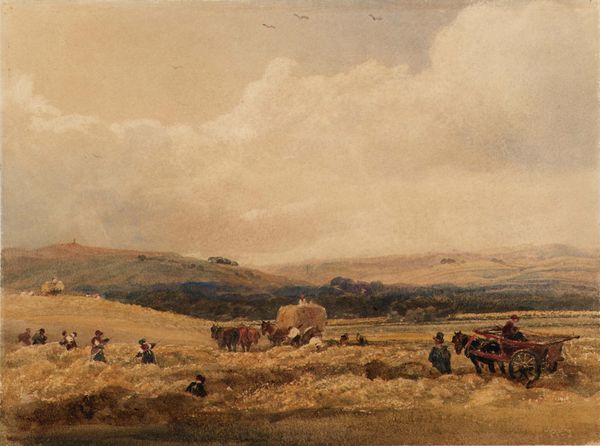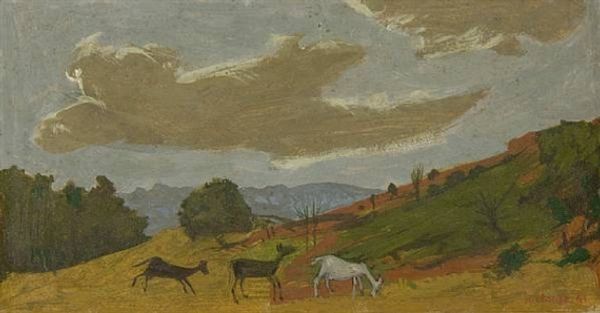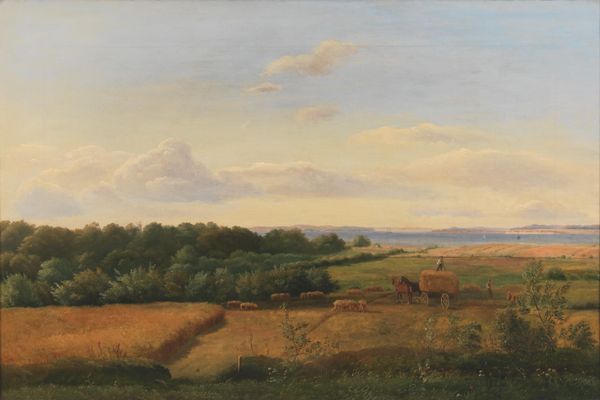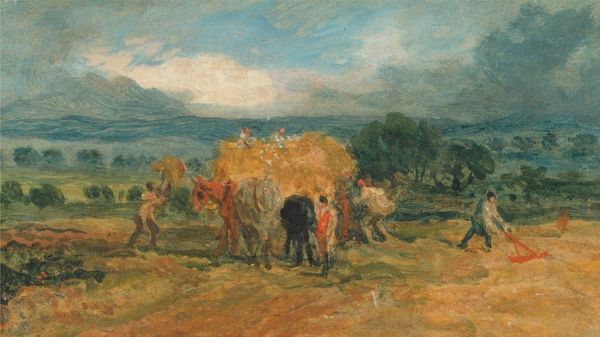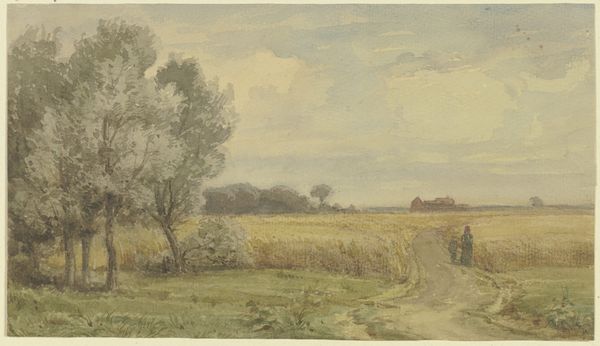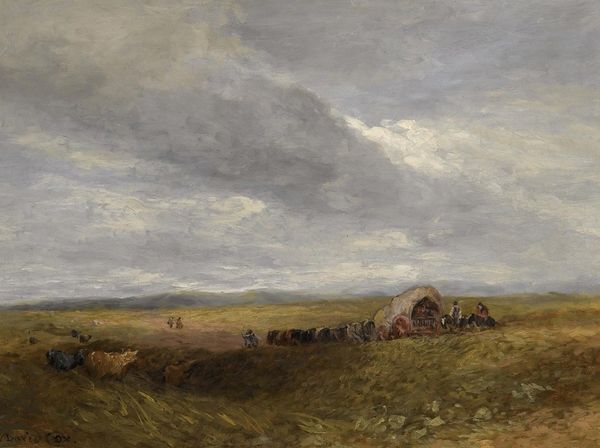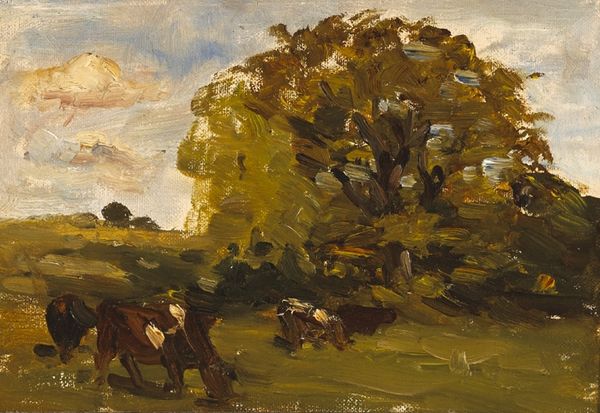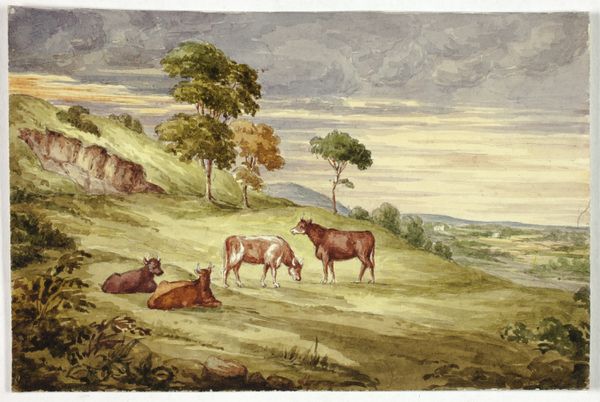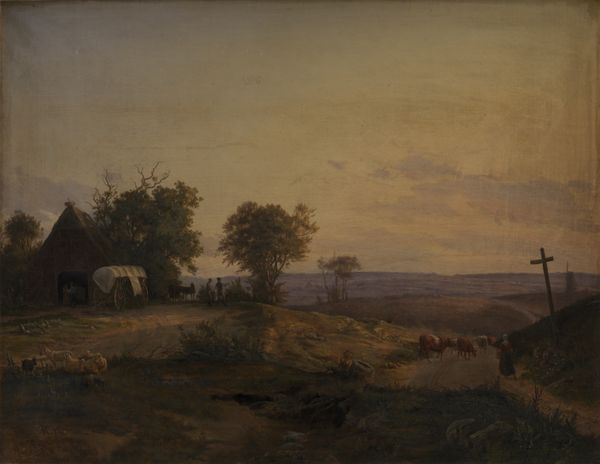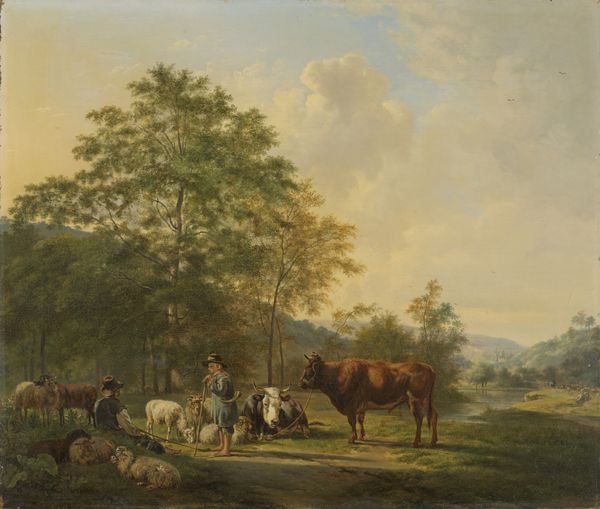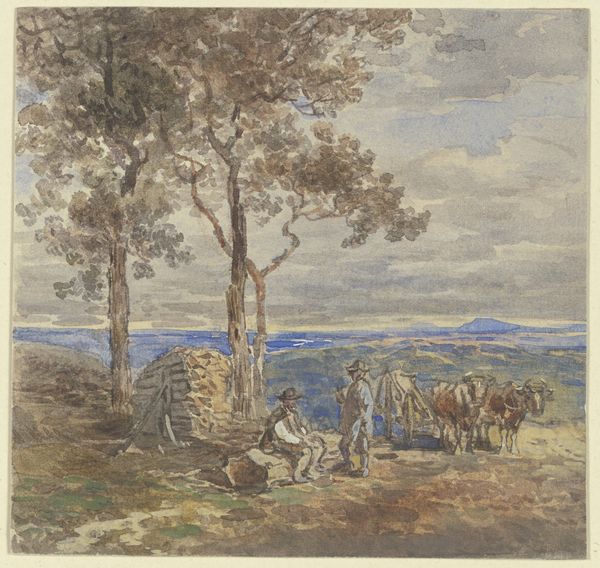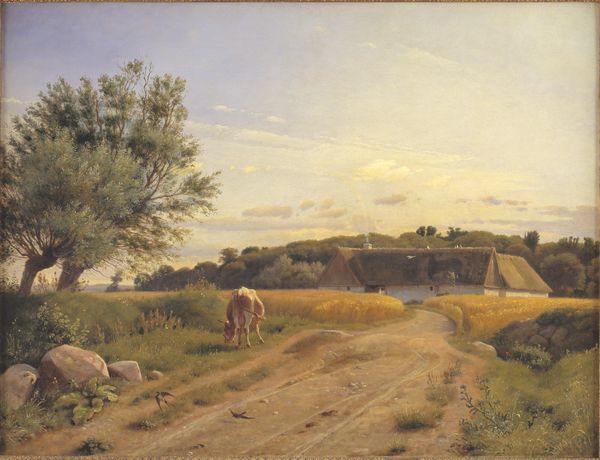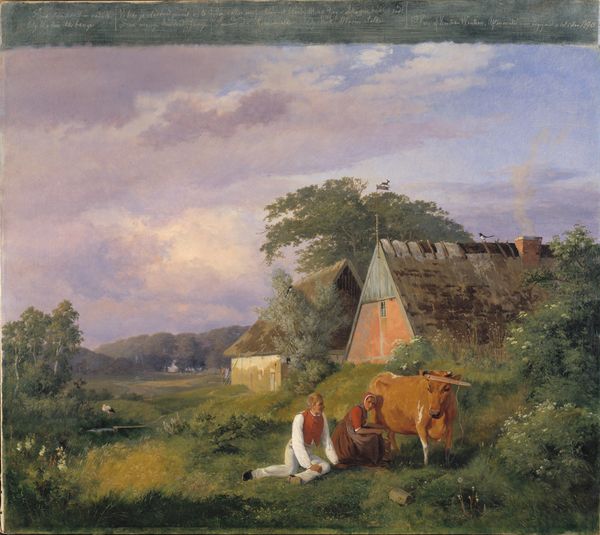
painting, plein-air, oil-paint
#
painting
#
plein-air
#
oil-paint
#
landscape
#
oil painting
#
romanticism
#
genre-painting
#
realism
Dimensions: 22.5 cm (height) x 30.5 cm (width) (Netto), 30.5 cm (height) x 40.7 cm (width) x 3.8 cm (depth) (Brutto)
Curator: Here we have Lorenz Frølich's "Landscape near Holmstrup, Zealand," an oil painting from 1845. The canvas presents a scene of rural life. Editor: Immediately, I feel this peaceful, sort of laborious energy emanating from the canvas. The clouds are epic but everything else feels muted, as if it is from a hazy summer afternoon. A perfect kind of melancholic contentment! Curator: Precisely! Frølich's work is an important record of daily life within that landscape. It emphasizes the value and dignity of labor but through a lens of Romanticism, we see how agricultural societies can provide community benefits by uniting in a shared culture through daily routines. Editor: You're totally right. But aside from the societal viewpoint, those brushstrokes! You can practically smell the wheat! Frølich really captures a palpable sense of texture with just paint! It reminds you how being immersed into nature grounds yourself as a part of that greater natural setting and cultural milieu. Curator: It's tempting to see Frølich's work, then, as an idealized representation of the Danish countryside. Consider though how he presents the class structure within this pastoral scene as the viewer finds themselves on the path alongside the farm boy versus being actively involved with harvesting. It serves as a form of societal tourism for the growing Danish middle-class of the era, providing a chance for audiences removed from those routines to contemplate country life and the fruits of agrarian life. Editor: Absolutely! This painting, from its political message to artistic flourishes, showcases the beauty in a life interwoven into landscapes. Curator: A beautiful convergence of lived life that both critiques the dominant structures that organize its social elements, Frølich successfully manages to explore what defines our experience when faced with Denmark. Editor: It’s kind of wonderful to consider Frølich's work continues speaking across these decades of changing expectations.
Comments
No comments
Be the first to comment and join the conversation on the ultimate creative platform.
